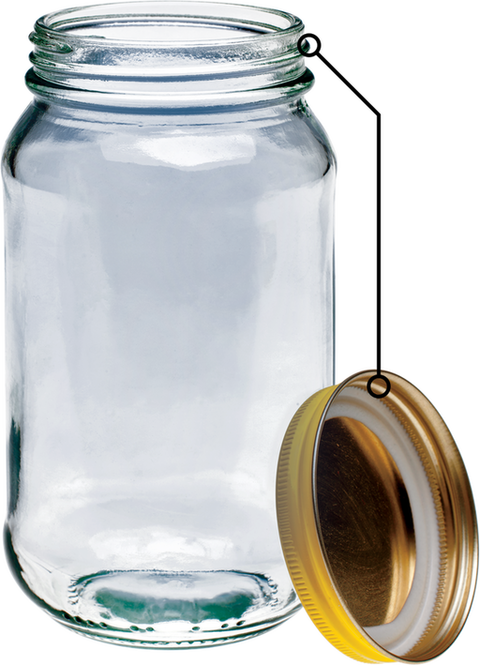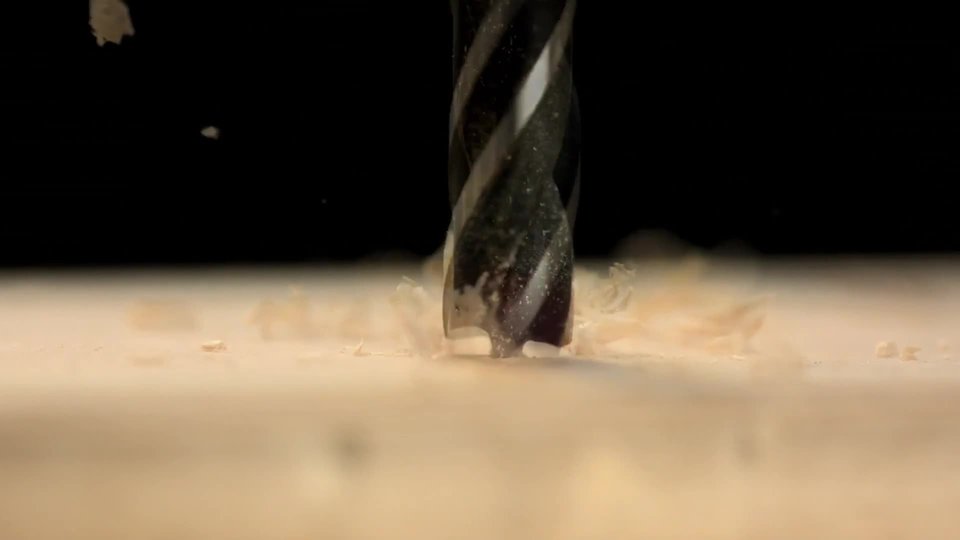It’sAllAboutTrade‑offs
RememberbuildingOllie’sdoghouse?Thescrewswerethesamelength.Thethreadsweredifferent.Thescrewswithmorethreadswereeasiertoturn.But,youhadtoturnthemmoreoften.Therearealwaystrade‑offs.Themorethreadsascrewhas,thelessforceyouneed.But,youhavetousethatforceoveragreater distance.
Ascrewwith30threadsmeans30 turnsofthescrew.Stretchoutthoseturns.Addthemup.You’veusedforceoveradistanceofseveral feet.
Tocutdownonthatdistance,usemoreforce.It’slikemovingastackofbooksfromonedesktoanother.Takeacouplebooksatatime.Youuselessforce,butyoumakemore trips.
Ifyoumovethewholestackatonce.Youusemoreforce,butit’sonlyone trip.
It’sthesamethingwiththescrew.Fewerthreadsmeanmoreeffort.Also,fewerthreadsprovidelessfrictiontoholdontothe screw.

A jaranditslidhavethreadsthatfit together.
HoldonTight
Screwscomeinmanyshapesandsizes.Howdoyoutakethelidoffajar?Youunscrewit!Alidisascrew.Takealookattherimofajar.Seethethreadsthatspiralaround?Nowlookinsidethelid.Ithasthreads,too.Theyfitbetweenthethreadsoftherim.Thethreadsmatchupandsealthe jar.
Screwskeepmorethanlidstight.Thestemofalightbulbisascrew.Thethreadsofthestemturnbetweenthethreadsinthesocket.Frictionbetweenthesethreadskeepsthebulbinplace.Agoodthing,too!Lightbulbsintheceilinghangupsidedown.Iftheyslipout,theymightfallontoyour head!

Thethreadsonalightbulbstemscrewintothesocketofa light.
thread
Adrillbitisshapedlikeascrew!Canyouseethe thread?
DigIn
Whenyoudriveascrewintowood,it’seasierifanarrowholeisthere.That’swhereadrillhelps.Andguesswhat?Adrillbitisa screw.
Amotorspinsthedrillbitquickly.Thetipofthebitdigsthroughthewood.Inafewseconds,youhaveanarrow hole.
Somelargerdrillsmakelargerholesintheground.Theydigholestomakewellsforwateroroil.Theyalsomakeholestosetfencepostsandtelephone poles.
